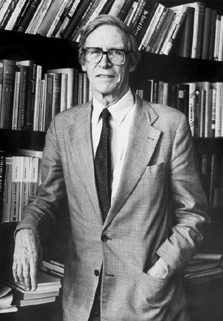 Lorna Finlayson in the New Left Review:
Lorna Finlayson in the New Left Review:
Katrina Forrester’s In the Shadow of Justice approaches Rawls’s work from the perspective of an intellectual historian. Her central thesis is that Rawls should be seen not as a philosopher of the 1960s—the era of Vietnam and of Lyndon Johnson’s ‘Great Society’—but rather as a thinker of the America of the 1940s and 50s. In those years, liberals sceptical of the interventionism of the administrative state saw their task as that of ‘securing the values of freedom and equality without the state intervention and political control that decades of state expansion had made a new norm’. On his return to Princeton in 1946 after three years’ combat in the Pacific War, the young Rawls embraced a ‘barebones’ anti-statism, close to that of Hayek or Walter Lippmann. In particular, Forrester demonstrates the importance for him of Frank Knight’s Ethics of Competition (1935): Rawls underlined his personal copy in three different pens and drew from the work of Knight and others the key idea of the game and its consensual rules as a social model. From Lippmann’s The Good Society (1937) he borrowed the analogy of the highway code—consensual regulation of the flow of traffic benefited all drivers, regardless of where they were going—widely used by early ordo- and neo-liberals. The heuristic device of the discussion between ‘reasonable men’—‘average, rational, right-thinking and fair’ heads of households—was already present in his 1949 doctoral thesis on ethical knowledge.
More here.
